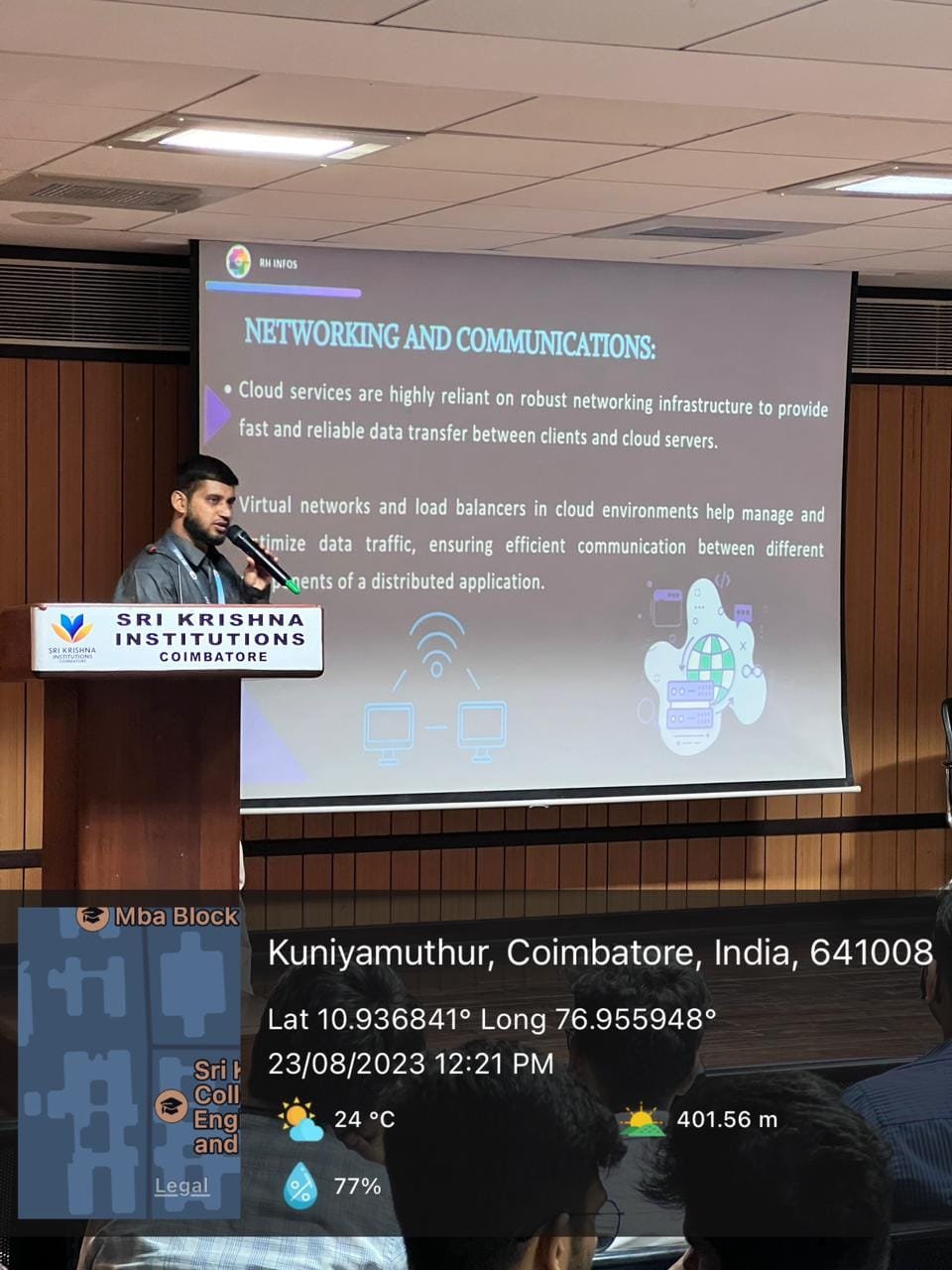
- This event has passed.
Full Day Workshop – “Innovation in the Cloud with Federated Learning”


RH Infos conducted an insightful workshop at Sri Krishna College of Technology, focusing on the topic of “Innovation in the Cloud with Federated Learning.” The workshop provided attendees with a comprehensive overview of cloud computing advancements, coupled with the transformative potential of federated learning.
Key Highlights:
1. Cloud Computing Evolution: The workshop commenced with an exploration of the evolution of cloud computing, from its foundational concepts to its current state. Participants gained a solid understanding of cloud service models (SaaS, PaaS, IaaS) and deployment models (public, private, hybrid).
2. Federated Learning Fundamentals: The core of the workshop centered around federated learning, a decentralized machine learning approach that enables model training across multiple devices or servers while keeping data localized. Attendees delved into the fundamental principles of federated learning, highlighting its advantages in terms of data privacy, security, and efficiency.
3.Innovative Applications: RH Infos presented various real-world use cases where the fusion of cloud computing and federated learning is driving innovation. These applications included healthcare diagnostics, financial predictions, industrial IoT optimization, and personalized marketing. Participants gained insights into how these technologies synergize to deliver accurate results without compromising data integrity.
4. Technical Deep Dive: The workshop offered a technical exploration of federated learning workflows, discussing concepts like model aggregation, secure aggregation protocols, and communication efficiency. Hands-on demonstrations and simulations illustrated the step-by-step process of federated learning in a cloud environment.
5. Challenges and Mitigations: Attendees engaged in discussions regarding the challenges posed by federated learning, such as communication overhead, data heterogeneity, and model convergence issues. Practical strategies and emerging solutions to address these challenges were discussed, emphasizing the importance of optimization techniques and adaptive algorithms.
6. Ethical and Legal Implications: Given the sensitivity of data sharing, the workshop dedicated a segment to the ethical and legal considerations surrounding federated learning. Participants explored topics like data ownership, consent, and compliance with regulations like GDPR.
7. Interactive Sessions: The workshop encouraged active participation through interactive sessions, including group discussions, brainstorming activities, and Q&A segments. Participants had the opportunity to clarify doubts, share perspectives, and engage in collaborative problem-solving.
8. Future Directions: RH Infos provided insights into the future trajectory of cloud computing and federated learning. The workshop touched upon advancements such as edge computing, 5G integration, and the potential fusion of federated learning with other AI paradigms.
9. Networking and Collaboration: Beyond the workshop content, attendees had the chance to connect with professionals from RH Infos and peers from various institutions. This facilitated knowledge exchange, idea sharing, and potential collaborations.
In conclusion, the “Innovation in Cloud with Federated Learning” workshop by RH Infos at Sri Krishna College of Technology served as a comprehensive platform for participants to explore the convergence of cloud computing and federated learning. The event fostered a deep understanding of these technologies’ synergistic potential and their role in shaping the future of data-driven innovation.
